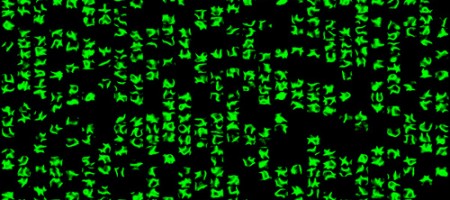Digital Humanities 2013, by Geoffrey Rockwell
Notes: These conference notes are being written live. I will get all sorts of things wrong and there will be gaps when I’m bored or interested (or skipping.)
These conference notes are about the Digital Humanities 2013 conference at Lincoln Nebraska.
Digital Humanities 2013: hooks in the 21st Century: Feminist Pedagogy in Action, by Dene Grigar
In 1994 belle hooks wrote in Teaching to Transgress: Education as the Practice of Freedom that “[t]here is a serious crisis in education. Students often do not want to learn and teachers do not want to teach . . . “ (12). A clear lack of excitement in the classroom, which some see as “disruptive of the atmosphere of seriousness,” as well as a lack of engagement and of freedom to explore are among some of the ills she cites in her book (6-10). hooks’ call to action empowered many feminist teachers to experiment with new teaching strategies, to address the needs of the whole student, and to become with their students active participants in the learning process––in short, it inspired us to embrace what she refers to as “transformative pedagogy” (39).
Digital Writing Studies: A Brief History in Technopedagogies of Making, (YouTube) by Cheryl Ball
This 17-minute screencast of a prezi was composed for the Digital Humanities 2013 conference in Lincoln, NE (for presentation on July 17, 2013). This is the long version of the video. A shorter, 7-minute version was edited and presented in my absence at the conference.
Designing Digital Advocacy DH 2013 Presentation (Slideshare), by Lindsay Thomas
Here are the slides for the 4Humanities presentation at DH 2013. Please share!
Reflections on #DH2013, by Karin Dalziel
This was my second DH conference (my last was in 2009 when I was able to attend as a student) and I got more out of it this year. For one thing, I am actually in a job where I make things this time, so I had a lot more to talk to others about. Second, I have been in touch with many in the community from attending THATCamps and other events, which made it easier to connect. There were a lot of panels I enjoyed, and I got to talk to a lot of very interesting people doing very interesting things. What follows is a jumbled list of my impressions after not enough sleep.
Reflections on #DH2013: History of Digital Humanities, by Lee Skallerup Bessette
Last week, I was in Lincoln, Nebraska for the annual international Digital Humanities conference. I presented and that went really well. We were placed on a panel with Willard McCarty, who also happened to be the Busa Award winner (in other words, a pretty big deal). He talked about the difficulties of being truly interdisciplinary during our panel and the importance of knowing the history of DH in his keynote address.
(You should also check out a podcast we did about our paper from the great Digital Dialogues series.)
These are all subjects that are near and dear to my heart; trained in comparative literature, I am all too aware of the difficulties that come with trying to be interdisciplinary. I am also aware of the difficulties in breaking into a new field, especially one as amorphous and still undefined as Digital Humanities. This is not to say that DH is under-theorized or does not have a long list of varying and competing histories; instead what I mean to say is that there is still a resistance to defining DH as a discipline, which makes it difficult to know where to start.

